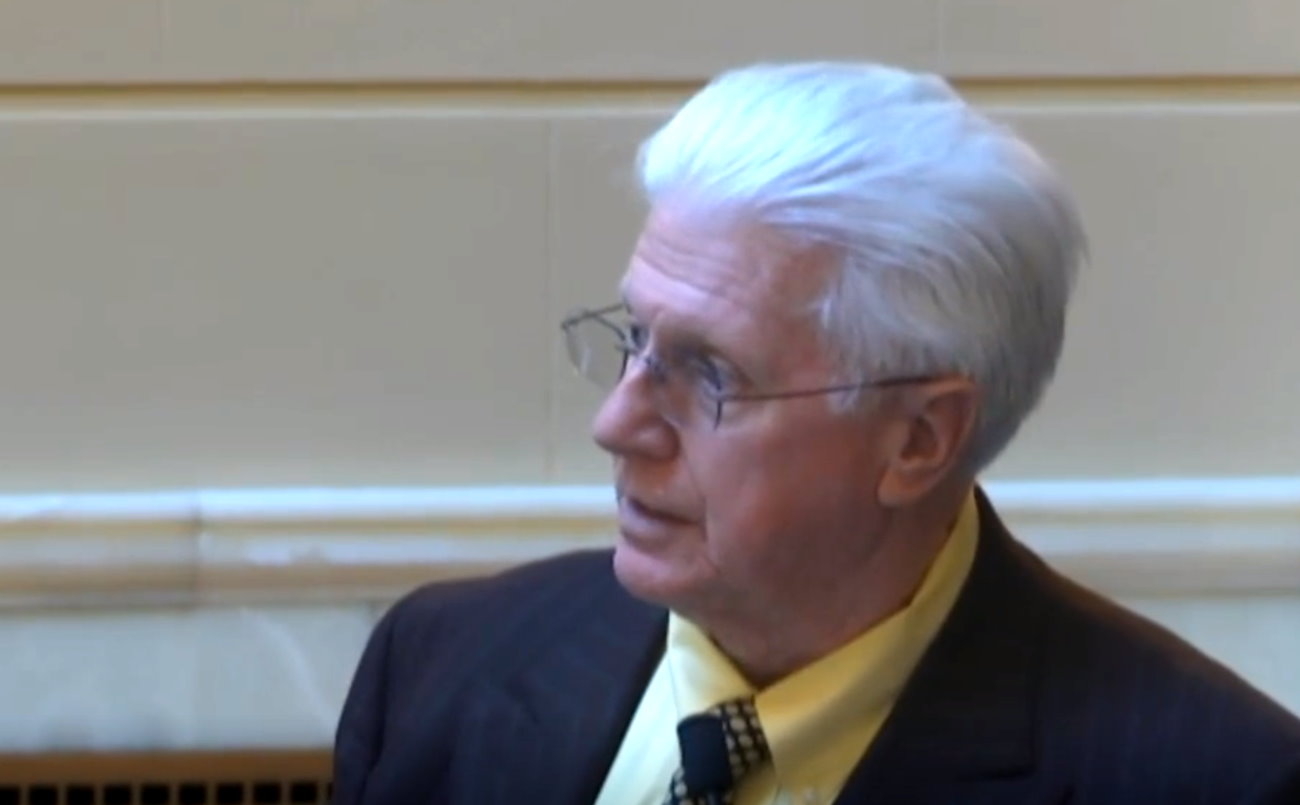
ST. GEORGE — A bill that would increase penalties on someone who repeatedly disrupts public meetings is making its way through the Legislature and has one huddle left to pass before making its way the governor’s desk.
Sen. Don Ipson, R-St. George, the author of SB 173, Disrupting Legislative Or Official Meetings, told the Senate last week that the bill “raises the penalty in an effort to create civility in our meetings.”
Currently, someone can be slapped with a class B misdemeanor for disrupting a legislative meeting to the point of disorderly conduct. Ipson’s bill lowers a first offense of disruption to a class C misdemeanor if the offending party doesn’t cease their disruptive behavior after a verbal warning. A second offense would raise the penalty to a class B misdemeanor, and a third offense to a class A.
The proposed law also primarily applies to legislative-related meetings or functions on the state level, and does not extend to disruptions that may occur in a town hall meeting held by a federal-level official, such as a member of congress, Ipson said.
While discussing the bill on the Senate floor, Sen. Gene Davis, D-Salt Lake City, asked about SB 173’s potential impact on someone’s free speech in public meetings.
“They have every right in the world to free speech,” Ipson said. “They don’t have the right to disrupt the meeting to the point of disorderly conduct.”

SB 173 passed the Senate last Thursday with a 25-4 vote. Southern Utah Sens. Evan Vickers, Ralph Okerlund and David Hinkins each voted in favor of the bill.
The bill was heard in the House Law Enforcement and Criminal Justice Committee on Monday. While it passed with a favorable recommendation and proceeds to the House floor, concerns were heard in opposition to SB 173.
Marina Lowe, representing the American Civil Liberties Union, said the group opposes the bill due to broad and vague language that can lead to abuse. The lowering of the penalty for disrupting a meeting may also encourage public officials to apply it more often as well. Such action has the potential to lead to litigation, Lowe said.
It was noted by Lowe and others that other states have similar laws. Some are upheld in court while others are stuck down for violating an individual’s freedom among other reasons.
Other groups opposed to SB 173 included the Utah chapter of the Society of Professional Journalists, The Utah Association of Criminal Defense Attorneys, the Salt Lake City Mayor’s Office and Action Utah, the latter being a group that teaches citizens how to be more civically engaged.
Andrea Himoff, executive director of Action Utah, said SB 173 could have “a chilling effect on free speech and civil engagement.”
The bill could make people afraid to speak up in public meetings due to fears of being labeled a potential “disruption” and being penalization for it.
Many Utahns already feel their elected officials don’t listen to them, Himoff said, adding SB 173 would only build upon that perception.
Lynn Pace, representing the Salt Lake City Mayor’s Office, said the city depends on public input to help run the city effectively and that SB 173 could cripple receiving that input. He also said the Mayor’s Office sees the existing law governing the disruption of meetings as adequate.
There were additional questions of just what constituted a disruption under the law, which tied back to the argued vagueness of the current law and the bill proposed to amend it.
When asked by a member of the House committee if a particular event prompted Ipson to introduce SB 173, he said there wasn’t one, and that he moved the bill forward more out of “an abundance of caution.”
Ipson’s bill now proceeds to the House for consideration.
For a complete list of contacts for Southern Utah representatives and senators, click here.
Check out all of St. George News’ coverage of the 2020 Utah Legislature here.
Copyright St. George News, SaintGeorgeUtah.com LLC, 2020, all rights reserved.